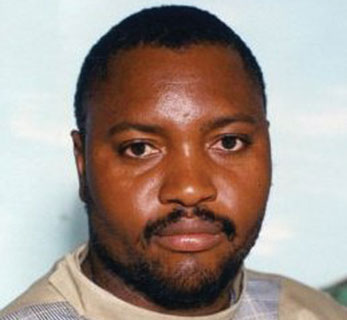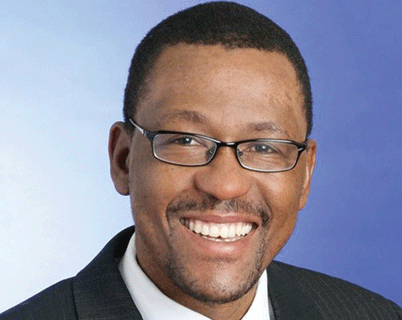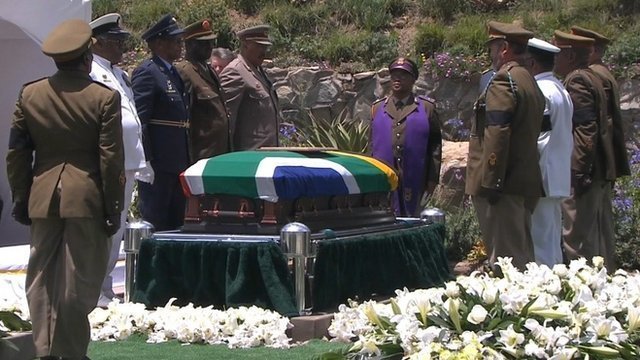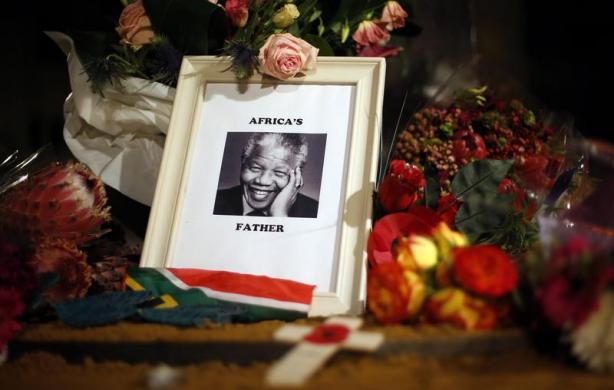
THIS week the people of Zimbabwe and the rest of the world join the people of South Africa in mourning the departure of a universally-acknowledged icon.
The whole wide world is in mourning for Nelson Rolihlahla Madiba Mandela who sadly passed on at the ripe age of 95.
Mandela’s health had significantly deteriorated leading to several episodes in and out of hospital. Probably the South African authorities in consultation with the elders exercised their wisdom to grant him palliative care from his home in Qunu village.
This decision would have been taken to please and appease the ancestors and also to afford him due dignity and respect.
Certainly all these preparations were done with the realisation that only an ephemeral recovery was possible.
It is an unwritten rule that all good things come to an end. The goodness that was Mandela had to come to an end. The news of his death transformed the world into an arena to mourn his departure and to celebrate his achievements.
The whole world bowed in respect with total unanimity.
Never before in recent memory has an individual’s death had so much profound effects on so many.
- Chamisa under fire over US$120K donation
- Mavhunga puts DeMbare into Chibuku quarterfinals
- Pension funds bet on Cabora Bassa oilfields
- Councils defy govt fire tender directive
Keep Reading
Media networks from all over the globe were on overdrive in their quests to outdo each other in coining superlatives in honour of this departed hero.
For some reason Zimbabwean media houses were slow or subdued in idolising Africa’s best known freedom fighter. When tributes started flowing from Zimbabwe, they were laced with buts and doubts.
Zimbabweans prowling social networks managed to share their thoughts on Mandela’s trials, tribulations and achievements. Some Zimbabweans found time to question his liberation struggle credentials and others made over-zealous comparisons between Mandela and President Robert Mugabe.
Those pregnant with Zanu PF dogma greeted his death with salvos of indignation. Here and there some disrespect for an individual whose ideals were grounded on the liberation struggle could be pointed out.
Mandela was accused for being too nice and too soft towards his former adversaries of the apartheid era. The pro-Mugabe brigade belittled Mandela for only enjoying a ride on the crest of popularity at the expense of wealth distribution. He was said to have failed to conform to the ideals of the ANC’s Freedom Charter.
Zimbabweans who criticised Mandela for failing to uplift the majority economically in his five-year tenure overlooked the fact that Zimbabwe and Mugabe in particular, did not embark on any meaningful redistribution of wealth, albeit chaotic, until Zanu PF’s twentieth anniversary in uninterrupted power.
Exponents of the theory that Mugabe is better than Mandela conveniently overlooked how apartheid South Africa had managed to neuter Mugabe’s Zimbabwe into a passive regional State that could not sneeze in case South Africa misconstrued the gesture as an offensive manoeuvre.
Before Mandela became the president of South Africa, Zimbabwe and several other Southern African countries were at the mercy of apartheid South Africa.
The continued minority rule in South Africa meant that Zimbabwe and other Southern African states almost toed the line as drawn by South Africa. Regional states did not behave any differently from the so-called “independent homelands” such as Bophuthatswana and Ciskei.
South Africa acted as a bully and regional leaders responded by hiding their heads in sand bunkers. Apartheid South Africa rewarded her proxies by taking over the responsibility of protecting them.
Hash lessons on the consequences of harassing the proxies were learnt when the then Mozambican president’s plane was allegedly guided by a decoy beacon to crash near Nkomatipoort.
It is significant to remind ourselves that Samora Machel’s fatal plane crash happened on his homeward journey from a conference in Zambia. Guess what? The conference had been convened to persuade Zaire’s Mobutu Sese Seko to stop supporting Unita in Angola. On top of this, Samora Matchel had previously threatened Kamuzu Banda for supporting Renamo.
Both Banda and Mobuto maintained cosy relations with apartheid South Africa.
Mugabe knew what apartheid South Africa was capable of especially since their airforce was fond of making provocative gestures above Thornhill Airforce Base. Mugabe was forced by the prevailing belligerence to exercise restraint.
He found it in his heart to avoid direct confrontation with South Africa or its proxies. He was forced to act cautiously on the land issue on the unacknowledged suspicion that the rich white farmers were untouchable de facto proxies of the apartheid regime.
It was only after Mandela had negotiated a political solution for the apartheid quandary in South Africa that Mugabe gathered some courage to push the white land owners into a landless corner.
This was 20 years into his seemingly never-ending rule. This is where Mandela’s effectiveness should be acknowledged by Zimbabweans. The selected beneficiaries of the land reform programme should really be grateful to Mandela. If he had not negotiated for the end of apartheid, maybe Zimbabweans would still be tilling the land and drawing water for white masters.
Zimbabweans should honour Mandela for ushering in political freedom for South Africans and also for making it possible for Zimbabwe to advance the wealth redistribution agenda.
The whole world extends heartfelt condolences to the bereaved Mandela family, the residents of Qunu village and to all the people of South Africa. May his dearly departed soul rest in eternal peace.
Masola waDabudabu is a social commentator










